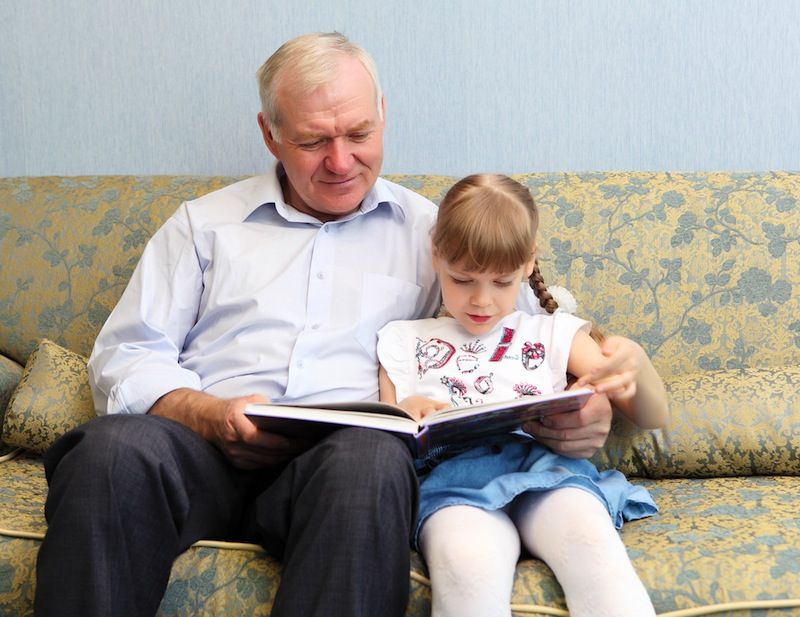Why Wait? Career and Romance Woes Lead to Delayed Childbearing

Women in Europe and the United States are becoming mothers later than in previous decades, a trend that has led to concerns over infertility and developmental problems caused by advanced parental age.
Now, new research finds one of the main reasons people delay having children until later in life: They simply haven't found the right partner yet. In spite of concerns, this reason could be tough to address from a policy standpoint.
The new study, from researchers in Sweden, finds the most common reason that 36- to 40-year-old people cite for not having children is that they don't have a suitable partner. A significant number also said they felt they weren't mature enough to have kids, or had things they wanted to do before having a family.
"The majority really wanted children, even [many] who were 36 or 40 years old," said study researcher Erica Schytt, who studies women and children's health at the Karolinska Institutet in Stockholm.
But having children later can be difficult.
"At minimum, they don't have the same possibilities of getting pregnant" as younger people, Schytt told LiveScience. [9 Odd Conditions Pregnancy May Bring]
Studies have shown the average age of first parenthood is rising in the United States. One report from the Centers for Disease Control and Prevention found the average American woman's age when she had her first baby rose from 21.4 in 1970 to 25.6 in 2011.
Sign up for the Live Science daily newsletter now
Get the world’s most fascinating discoveries delivered straight to your inbox.
A separate 2012 CDC report found that today's U.S. fathers are 25.1, on average, at the birth of their first child.
In Europe, people tend to delay parenthood even later. In the Netherlands, for example, the average first-time dad is 32, and the average first-time mom is 29.
Missing their other half
Most studies on people's childrearing intentions have looked at people in their early 20s, finding that this population hopes to start having kids in their late 20s or early 30s, Schytt and her colleagues write in an article forthcoming in the journal Sexual and Reproductive Health.
Indeed, national statistics reveal that in Sweden, the average age of first-time moms is 29. For first-time dads, it's 31.
But both numbers are up by about five years since 1970, and the researchers wanted to know why. They looked at responses to a long-running survey from 365 childless women and 365 childless men, who were ages 28, 32, 36 or 40. [5 Myths About Fertility Treatments]
Most of the younger respondents said they wanted children, including about 85 percent of 28-year-old women and 79 percent of 28-year-old men. In the 36- and 40-year-old groups, 32 percent of women and 37 percent of men said they still intended to have kids.
The respondents were allowed to list as many reasons as they wanted to explain why they had not had kids. The main explanation 28-year-olds gave for staying childless was being too young. This group also said they had other things to do before starting a family, were financially insecure and had no suitable mate.
The middle group, age 32, had the same concerns, though they were less likely than the 28-year-olds to cite financial or career instability as a reason to delay child-rearing.
At ages 36 and 40, the reasons shifted. Forty-four percent of these men and women said they weren't interested in having a kid, and 26 percent of women and 33 percent of men said they had other things to do before starting a family. And 29 percent of women and 35 percent of men in this age bracket said they weren't mature enough to be parents.
Politics versus biology
But the main reason 36- to 40-year-olds had not had children was the lack of a partner, with 60 percent saying they hadn't found the right person yet.
"That is, I think, a sad problem," Schytt said. People single at these ages have higher rates of depression and lower income, she said, and might be less attractive to others as mates. A mismatch between men and women's desires in a partner might also play a role.
"In Sweden, women get better educated than men at the moment, and women want men who have a level of education similar to themselves, or a higher income," Schytt said. "I think it's more and more difficult for women to find men that match them."
Sweden has a famously generous paid parental-leave policy, which includes paternity leave. But the amount people earn while on leave is pegged to their working salary. Although it's biologically appealing for women and men to have babies in their 20s, many are still in school or earning low wages, so taking a pay cut to raise a child may not be feasible.
"The two systems — biological and political — they work against each other," Schytt said. "That is the greatest problem, I think."
Follow Stephanie Pappas on Twitter and Google+. Follow us @livescience, Facebook & Google+. Original article on LiveScience.

Stephanie Pappas is a contributing writer for Live Science, covering topics ranging from geoscience to archaeology to the human brain and behavior. She was previously a senior writer for Live Science but is now a freelancer based in Denver, Colorado, and regularly contributes to Scientific American and The Monitor, the monthly magazine of the American Psychological Association. Stephanie received a bachelor's degree in psychology from the University of South Carolina and a graduate certificate in science communication from the University of California, Santa Cruz.












